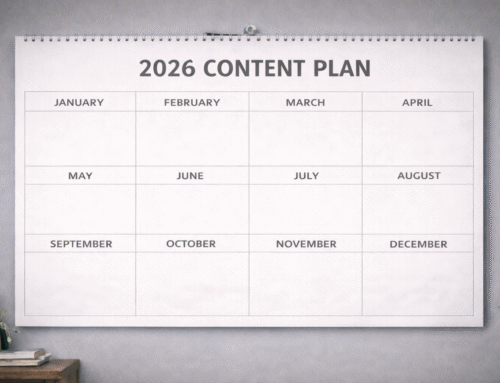The pen is mightier than the sword, and at Rumpus Writing and Editing, we know that the strength of the pen can help you tap into a wellspring of veterinary job seekers during the current talent drought.
But, like any powerful source, the written word must be wielded with care—and strategy—to ensure you access its full potential. Here are our tips on using quality writing and communications to help build and sustain your veterinary team.
#1: It starts with your ad. Craft you job ad to stand out
Generic job ads generate generic results. Posting a run-of-the-mill job listing in today’s market is like shouting in a tunnel. No matter how often you refresh your screen, you see the same words: “No new applicants.” But a negative result may not mean no one is looking—simply that your ad isn’t catching their eye.
Remember, like attracts like—to convince top-quality candidates to open and read your job ad, you must construct an equally excellent but authentic ad title and listing. Consider your practice brand, mission statement, and core values, and write an ad that encapsulates that energy, purpose, and motivation. Modern professionals are looking for more than wages and benefits, so speak to the experience of working at your practice. If your team is tight-knit with a sense of humor, consider a playful or creative ad. If your brand emphasizes professionalism, write more serious, outcome-based copy about the patient and client experience at your practice.
#2: What’s in it for me? Don’t leave out the important details
Once your headline and tone has grabbed a suitable job applicant’s attention, grow their interest and inspire their action (i.e., submitting their application) by providing relevant and practical job details.
In a 2022 LinkedIn survey, respondents were asked to identify the job listing elements that most played a role in their application decision. Results included:
- Role responsibilities (90%)
- Salary range (89%)
- Applicant qualifications (82%)
- Company information (60%)
If you’re tempted to omit the salary or wage range or to use vague terms (e.g., negotiable, competitive, or commensurate with experience), consider this: 91% of respondents said that published salary ranges would affect their willingness to apply. Don’t withhold critical information when writing your job ad. Including salary, benefits, and other practical information shows you are committed to transparency and you respect the job seeker’s time.
#3: Introductions: First connect with your applicants with an interview invitation
Email potentially suitable candidates to introduce yourself and invite them for an interview. Unlike a phone call or voicemail, an email introduction lets you craft your message to align with your practice or brand and allows the job seeker to respond at their convenience. Email communication also gives them time to prepare questions or concerns that may affect whether they continue the interview process. Finally, email can help you pre-screen unsuitable candidates before you conduct a time-consuming in-person interview.
Your interview invitation email should include:
- Enthusiasm and gratitude for their application, in the same style you used in the original job ad
- Reiteration and a summary of the position
- Potential dates and times for phone or in-person interviews
- Interview details, including method (e.g., phone, video chat, in-person), location, and expectations (e.g., traditional or working interview, time commitment, uniform)
- Contact information for follow-up questions and communication
Create an interview invitation template—then, customize the copy with the applicant’s name and a takeaway or highlight from their application or resume. This extra step conveys genuine interest in the applicant and helps your practice stand out in a sea of potential employers.
#4: Timely follow-up: Communicate your expectations to applicants
After the interview, send all candidates—including those you are no longer considering—a brief email. Thank them for their time and consideration, followed by a brief but polite statement that they have not been selected, or an anticipated timeline for your next communication (e.g., a decision, formal offer, or invitation to the next round).
Whether or not you decide to hire the interviewee, a simple follow-up email that expresses gratitude and relays your decision will give the applicant a positive and professional impression, which can enhance your practice’s local reputation and potentially attract future applicants via word of mouth. For candidates still under consideration, an appreciative email that includes next steps can help them determine whether to pursue other opportunities, and avoid unnecessary stress when they don’t hear back from you right away.
#5: Keep it going: Use clear, concise writing to communicate with your team

Once you’ve assembled your superstar veterinary team, quality writing continues to be important. Written communication plays a vital role in practice growth, development, and culture by sharing information clearly and consistently. Quality writing helps increase team retention through:
- Team memos and reminders — Whether by text, email, or an old-fashioned flyer on the wall, communication that is well-written and concise disperses need-to-know information that can minimize errors and employee frustration.
- Performance reviews — Written evaluations should summarize the discussion in each performance review, including the team member’s strengths, areas for improvement, concerns, and potential solutions. Each team member should receive an emailed or printed copy.
- Employee goal-setting — Provide actionable steps in a written game plan or task-list for your team member to achieve their professional goals, interests, or aspirations. Give the team member a copy, review their goal progress at each meeting, and identify how you will support them in their professional development.
Writing’s power isn’t limited to the page or screen. Well-crafted job listings, emails, and team communications can help you attract, assemble, and keep your practice’s most precious but rare asset—your team.
However, if you don’t have the time or desire to turn words into action, the Rumpus Writing and Editing team can craft unique, personalized, and brand-specific copy that stands out and gets results. Contact us to schedule a consultation.








Leave A Comment